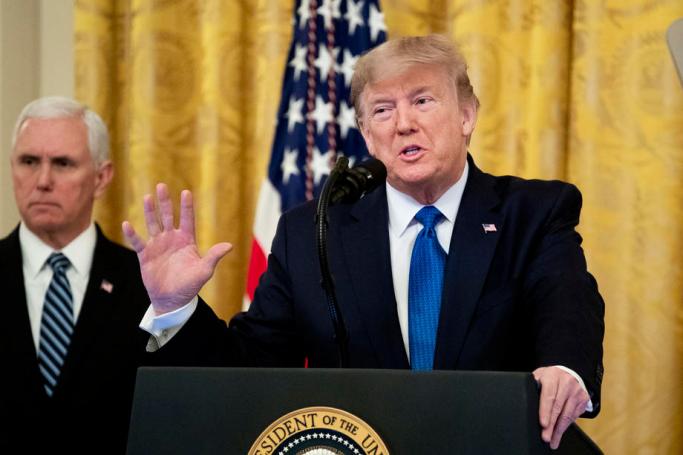US President Donald Trump on Friday slapped immigration restrictions on citizens of six countries including Myanmar, in addition to the list of nations already targeted by his controversial travel ban.
Besides Myanmar, the new measures also pertain to Africa’s most populous nation Nigeria, Eritrea, Kyrgyzstan, Sudan and Tanzania, administration officials said.
"The president's decision is the product of a comprehensive and systematic assessment that was conducted by the Department of Homeland Security, as well as in partnership with other federal agencies," said one of the officials.
The official added that the decision was the "result of these countries' unwillingness or inability to adhere to certain baseline identity management, information sharing and national security and public safety assessment criteria that were established by the department in 2017."
Unlike the travel ban Trump unveiled in January 2017 shortly after taking office, which banned citizens of certain Muslim-majority countries from entering US territory, the latest directive, which takes effect February 22, was less sweeping.
The official said it would only target certain visa categories and would focus primarily on people seeking to move to the United States rather than those simply aiming to visit.
- 'Have to be safe' -
Trump had announced his intention to lengthen the list of countries last week on the sidelines of the World Economic Forum in Davos.
"We have to be safe. Our country has to be safe," he said.
Trump repeatedly promised during his election campaign to implement a complete ban on Muslims entering the US, and he announced his first package of travel bans and restrictions shortly after taking office in January 2017.
The move outraged critics and was struck down by a federal court that ruled the ban amounted to religious discrimination. The administration moved a second version of the policy in March 2017, which was struck down again for similar reasons.
But the third version of the policy was upheld by the US Supreme Court in June 2018 in a 5-4 ruling that affirmed the president had broad power to set immigration policy based on national security justifications.
The countries covered under that version are Iran, Libya, Somalia, Syria, Yemen and North Korea, and political officials from Venezuela. The administration argued the inclusion of non-Muslim majority countries proved the policy was not driven by religious animus.
- 'Anti-Muslim policy' -
The American Civil Liberties Union (ACLU) was quick to condemn the new restrictions, saying that the administration was simply "expanding" the ban's scope.
"President Trump is doubling down on his signature anti-Muslim policy -- and using the ban as a way to put even more of his prejudices into practice by excluding more communities of color," the ACLU said in a statement.
The NGO Refugees International added that it was "unreasonable and unnecessary to broadly restrict immigration based on nationality, race, or religion."
The sentiment was echoed by Democratic lawmakers as well, such as House Homeland Security Chairman Bennie Thompson who said that the measure was consistent with Trump's "thoughts on immigration from countries with predominately black and brown populations."
"The fact that he has couched this political decision in homeland or national security terms is grotesque," Thompson added.
Nigeria's minister of foreign affairs is expected in Washington Monday for strategic dialogue with the United States.
In recent weeks, Trump's administration has shown clear support for the transitional government in fast-changing Sudan and is negotiating Khartoum's removal from a list of countries the US deems backers of terrorism.
AFP












